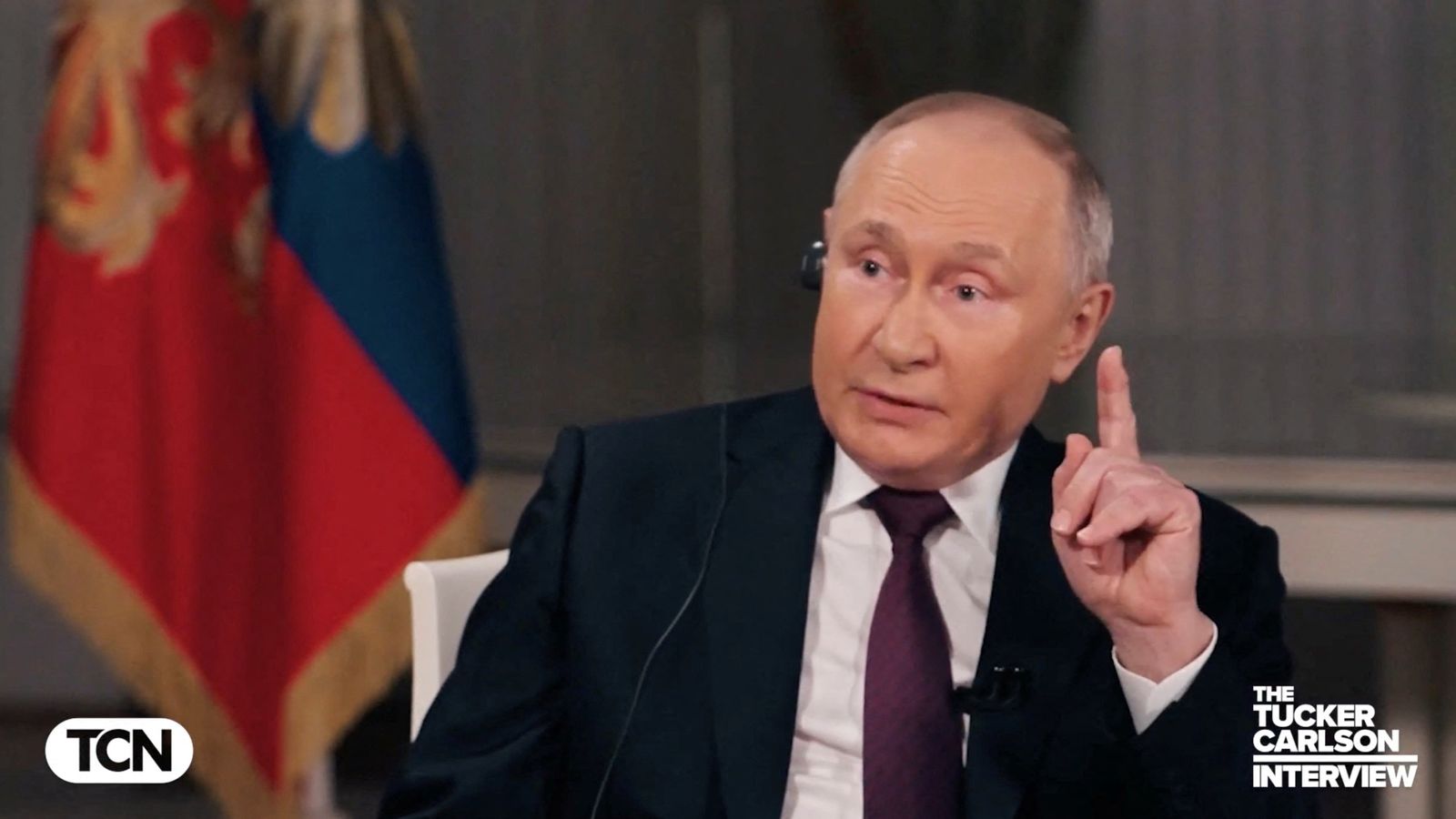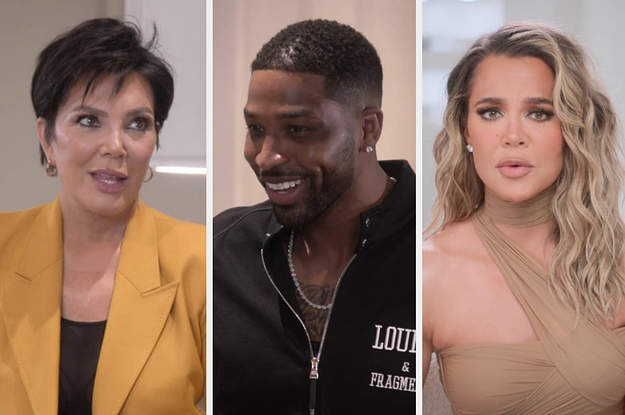Vladimir Putin has said Bill Clinton misled him over Russia’s potential membership of NATO two decades ago.
During a lengthy interview with the former Fox News host Tucker Carlson, the Russian president said he asked the outgoing President Clinton if his country could join the alliance when he visited the Kremlin in 2000.
He claims Mr Clinton initially suggested he believed that would be possible, before rowing back on the statement later that same evening.
Ukraine-Russia war latest: Putin claims Clinton suggested Russia joining NATO
Explainer: Poisoned, jailed and mysterious fall from window: What’s happened to Vladimir Putin’s most vocal critics?
Speaking through a translator, President Putin said: “I asked him: ‘Bill, do you think if Russia asked to join NATO, do you think it would happen?’
“Suddenly he said, ‘you know, it’s interesting. I think so’.
“But in the evening, when we met for dinner, he said: ‘You know, I’ve talked to my team, no, it’s not possible now’.”
Ukraine: Zelenskyy’s decision to replace military chief will hurt morale of troops and unsettle Western allies
Poisoned, jailed and mysterious fall from window: What’s happened to Vladimir Putin’s most vocal critics?
Kamila Valieva: Banned Russian skater blames positive drugs test on grandfather’s strawberry dessert
In a conversation that spanned more that two hours, Mr Putin spoke at length about his view of Russian history and the nation’s relationship with Ukraine from the ninth century to the present day.
On the subject of the war in Ukraine, he told Carlson – who has been a vocal critic of US support for Kyiv – he would be prepared to negotiate a peace with Volodymyr Zelenskyy but added that Russia had not yet achieved its aims in the country, including “de-Nazification”.
He said: “We have never refused negotiations indeed. We hear all the time, is Russia ready?
“Yes. We have not refused. It was them who publicly refused. Well, let him cancel his decree [not to negotiate with Russia] and enter into negotiations. We have never refused.”
Mr Putin further claimed that he “couldn’t remember” the last time he spoke to President Biden and that Russian defeat on the battlefield was “impossible”.
He said: “Up until now, there has been the uproar and screaming about inflicting a strategic defeat to Russia on the battlefield. But now they are apparently coming to realise that it is difficult to achieve, if possible, at all.
“In my opinion, it is impossible by definition. It is never going to happen. It seems to me that now those who are in power in the West have come to realise this as well.”
Read more:
Dozens detained at rally involving wives of Russian soldiers
At least 28 killed in shelling in Russian-occupied city in Ukraine
Russia extends detention of Wall Street Journal reporter
Please use Chrome browser for a more accessible video player
The Russian president also said that he had “no interest” in attacking Poland or Latvia, saying he would only do so if either country were to attack Russia.
“It goes against common sense to get involved in some kind of a global war and a global war will bring all humanity to the brink of destruction. It’s obvious,” he says.
However, it should be remembered that in January 2022 Putin said he had no plans to invade Ukraine, just days before he sent tanks and troops over the border.
On the topic of Wall Street Journal reporter Evan Gershkovich, who has been in a Russian prison for almost a year, Mr Putin said he would not “rule out” returning the journalist to the US, provided the US takes “reciprocal steps”.
Russia has accused Gershkovich of being an American spy, something the US denies.
Tucker Carlson, who has been a vocal supporter of Mr Putin in the past, was sacked from Fox News in April last year.
He took up the prime-time weekday evenings spot on Fox News in 2016 with his show, Tucker Carlson Tonight, and quickly established himself as a key player in the network and an influential voice in Republican politics.
He often embraced conspiracy theories and far-right issues. He repeatedly questioned the efficacy of COVID vaccines and compared mandates to “Nazi experiments”.
While he found success with viewers, his inflammatory comments caused some advertisers to distance themselves from the programme.







